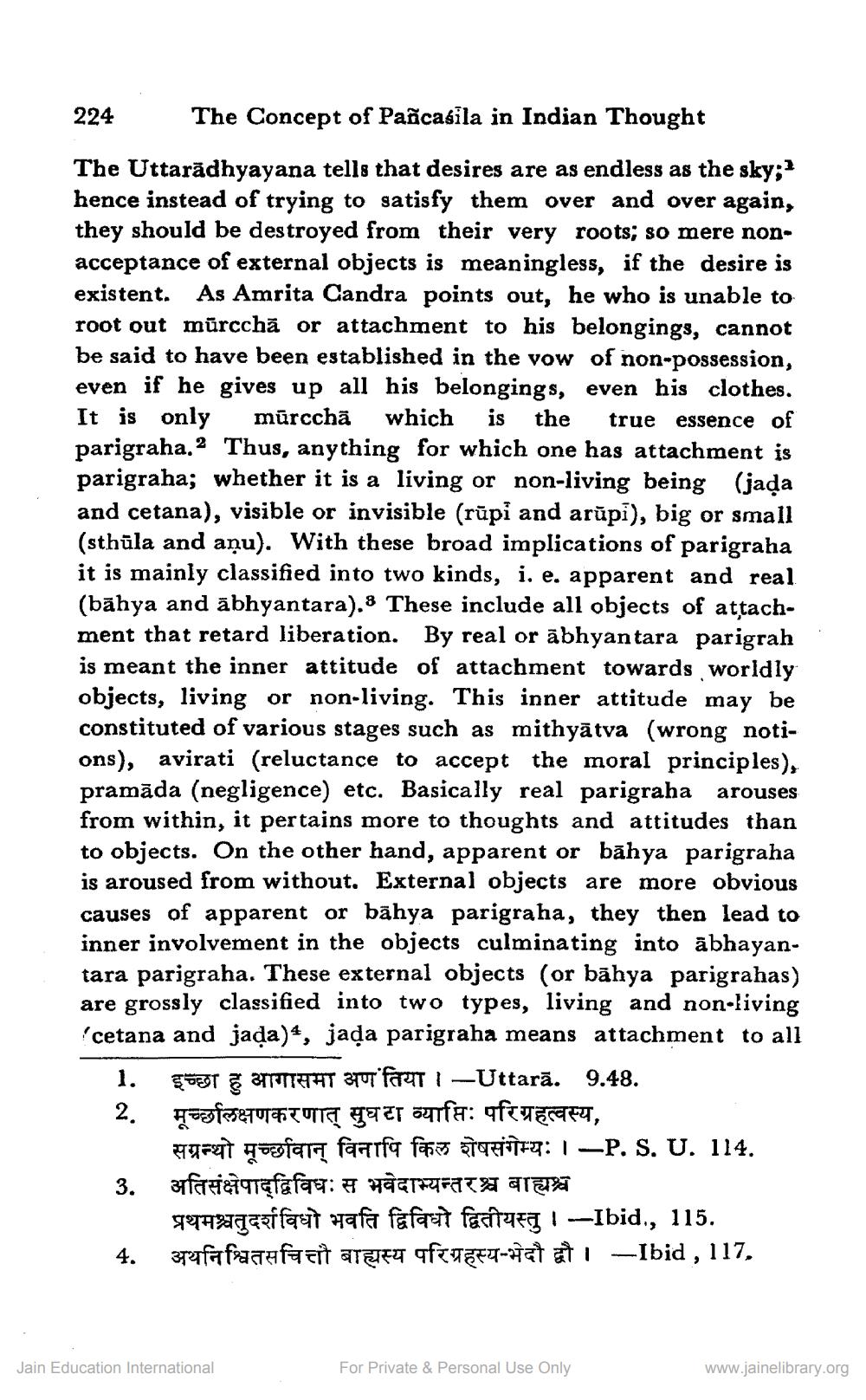________________
The Concept of Pancasila in Indian Thought
The Uttaradhyayana tells that desires are as endless as the sky;1 hence instead of trying to satisfy them over and over again, they should be destroyed from their very roots; so mere nonacceptance of external objects is meaningless, if the desire is existent. As Amrita Candra points out, he who is unable to root out mürccha or attachment to his belongings, cannot be said to have been established in the vow of non-possession, even if he gives up all his belongings, even his clothes. It is only mūrcchā which is the true essence of parigraha. Thus, anything for which one has attachment is parigraha; whether it is a living or non-living being (jaḍa and cetana), visible or invisible (rūpi and arupi), big or small (sthula and aņu). With these broad implications of parigraha it is mainly classified into two kinds, i. e. apparent and real (bahya and abhyantara). These include all objects of attachment that retard liberation. By real or abhyantara parigrah is meant the inner attitude of attachment towards worldly objects, living or non-living. This inner attitude may be constituted of various stages such as mithyātva (wrong notions), avirati (reluctance to accept the moral principles), pramāda (negligence) etc. Basically real parigraha arouses from within, it pertains more to thoughts and attitudes than to objects. On the other hand, apparent or bahya parigraha is aroused from without. External objects are more obvious causes of apparent or bahya parigraha, they then lead to inner involvement in the objects culminating into abhayantara parigraha. These external objects (or bahya parigrahas) are grossly classified into two types, living and non-living 'cetana and jaḍa), jaḍa parigraha means attachment to all
224
1. इच्छा हु आगासमा अणं तिया । — Uttarā. 9.48.
2.
मूर्च्छालक्षणकरणात् सुघटा व्याप्तिः परिग्रहत्वस्य,
सग्रन्थो मूर्च्छावान् विनापि किल शेषसंगेम्य: । - P. S. U. 114. अतिसंक्षेपाद्विविधः स भवेदाभ्यन्तरश्च बाह्यव
प्रथमश्चतुदर्शविधो भवति द्विविधो द्वितीयस्तु । —Ibid., 115. 4. arafafafant argeq qfzage4-Ĥat at
Ibid, 117,
3.
Jain Education International
For Private & Personal Use Only
www.jainelibrary.org




